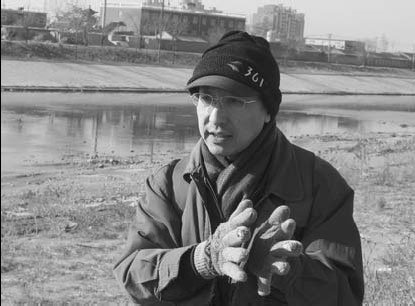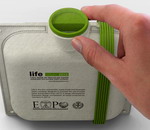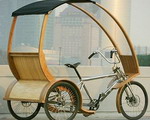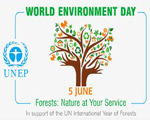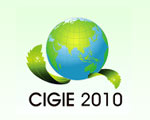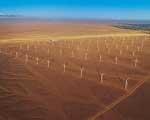Weekend walk points out pollution
By Xu Wei (China Daily)
2012-03-22 08:13
|
|
|
Zhang Junfeng, a 49-year-old Beijing resident, has been hiking along the rivers, ravines and reservoirs in the capital every Saturday since 2007 to monitor the water quality. Xu Wei / China Daily |
Every Saturday Zhang Junfeng hikes along the rivers, ravines and reservoirs of Beijing.
He leads a particular kind of nature tour - pointing out signs of pollution.
"People typically learn about pollution by reading and by watching TV, and very few people bother to see what the pollution is really like by themselves," said Zhang, one of the founders of the non-government organization Happy Water Journeys.
Over the past five years, the 49-year-old has led more than 20,000 people for the environmental group's routine Saturday hiking trips.
"We go to the sewage drains exiting into rivers, to water heads and dried riverbeds. People can talk to each other and see the garbage in the rivers and know how some rivers stink."
Zhang's interest in Beijing's rivers can be traced to the early 1990s when he worked as a satellite engineer with poverty alleviation programs in Sichuan province, helping build roads in mountainous areas.
After he returned to Beijing, Zhang started to tour the rivers in Beijing with his son on the weekends. He also went to study rivers and ecology for a master's degree at China Agricultural University.
By the time he started Happy Water Journeys in 2007 at the invitation of many environmentalists, Zhang had already gained expertise in rivers and reservoirs through numerous driving trips between 2003 and 2007.
"He sticks to the routine of hiking along rivers every Saturday, even though nobody joins him on cold winter days or on Chinese New Year," said Wang Weiguo, 49.
At times, Zhang uses his Blackberry to take pictures and occasionally throws a stone into the river to see its effect.
"If the river is polluted, there will be clearly shaped foam," Zhang said.
But in comparison, the shortage of water is a far more serious problem than pollution, Zhang continued.
"Rivers are drying up. In many years we may end up drinking the water from the dirty rivers."
Zhang said he and other hikers would trace a river to its upper stream and water source, only to find them drying out.
"Usually we find rivers dry up before reaching the urban areas and then the water volume suddenly increases with a large amount of water injected from drains and sewage," Zhang said.
"Initially I thought that through our hiking activities we could make our voices heard by the water authorities, and enable them to be better aware of the pollution problems.
"Gradually I realized that the pollutants in the river actually come from our way of life, from the cosmetics and the detergents we use in our daily lives. It has a lot to do with our lifestyles."
Zhang arranges the route for each trip in advance and answers questions from participants along the way.
So far his hiking trips have covered two-thirds of the rivers and most of the reservoirs in Beijing. He is also planning to come up with a detailed map of rivers in Beijing, including pollution, residential communities and the factories along the way.
"But it is a huge project with numerous statistics to be gathered," Zhang said, adding that he can only work on the project during his spare time.
According to Zhang, not all the participants are environmentally zealous.
"Some come to exercise, some to socialize," Zhang said.
However, that does not matter to him.
"I only want the participants to know that there is a different way to learn about nature and the environment, which is by seeing it with their own eyes and getting firsthand experience," Zhang said.
"Seeing is believing," said Cheng Mengxiang, a 60-year-old Beijing resident who admitted to having first joined the trips for exercise.
Now, as a regular participant, he tells his family to conserve water after seeing how water is drying up along the rivers.
"I also tell my co-workers to stop drinking bottled water as one bottle of water requires five times that amount to produce," Chen said.
For Zhang, that is the reason he continues the hikes.
"Although I can't make a living with this, I think it is well worth the effort."
xuwei@chinadaily.com.cn
(China Daily 03/22/2012 page2)

